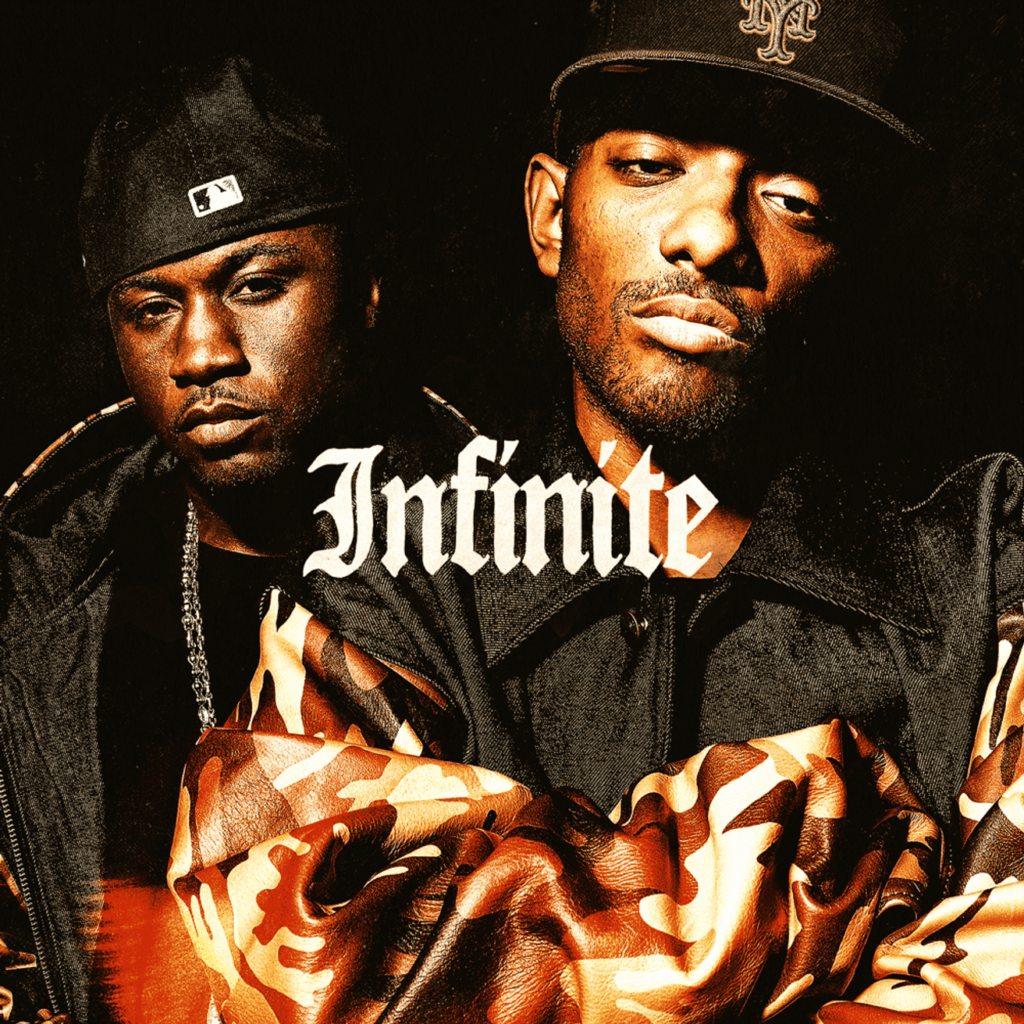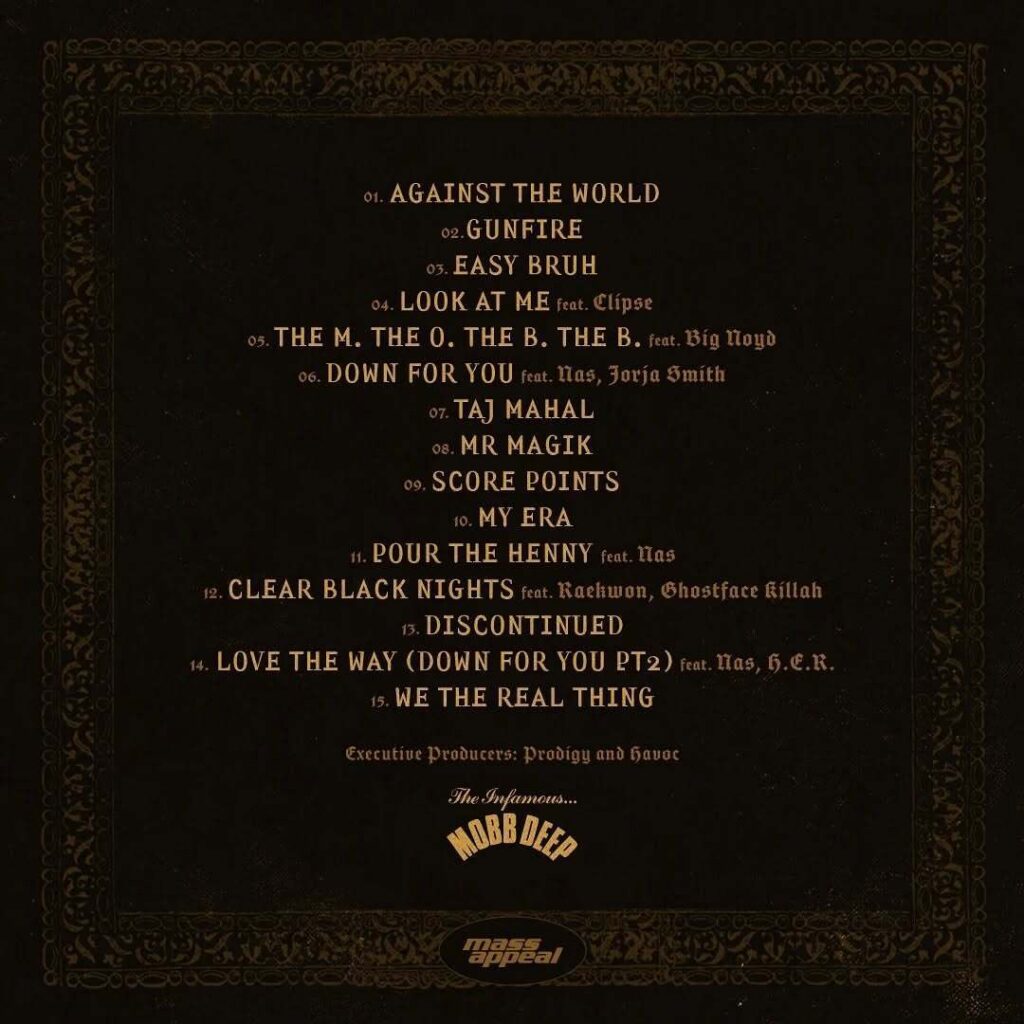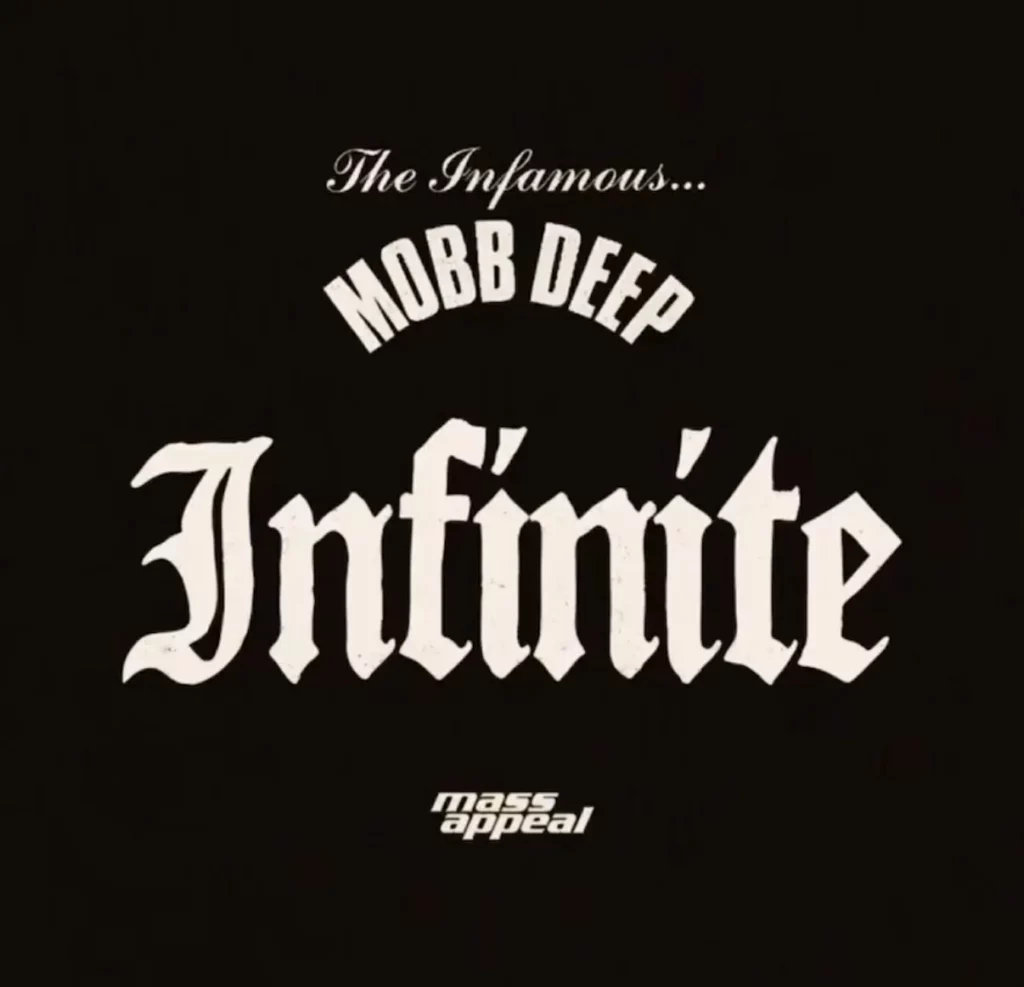When Havoc announced Infinite, the first full-length Mobb Deep album since 2014 and the first released after Prodigy’s death, the response mixed excitement with unease. The idea of new Mobb Deep music without both members in the studio felt risky. But Infinite—a 51-minute project built from unreleased Prodigy verses, new Havoc material, and production handled by Havoc and The Alchemist—lands with control and purpose. It feels lived-in, faithful to the duo’s voice without leaning on nostalgia or forced sentiment.
Mobb Deep’s history carries heavy weight. Havoc and Prodigy came out of Queensbridge in the early 1990s, teenagers turning street life into precise narrative. After a lukewarm debut with Juvenile Hell in 1993, they refined their sound on The Infamous (1995), a record that reshaped East Coast Hip Hop. Its cold drums, minor-key loops, and clipped realism created a template for a darker, more disciplined New York sound. Hell on Earth (1996) and Murda Muzik (1999) followed, building on that approach with sharper production and deeper focus. Their run through the late ’90s established them as a defining voice in hardcore Hip Hop.
Infinite reconnects with that aesthetic but doesn’t repeat it wholesale. Havoc and The Alchemist bring the same grit through a modern lens—clearer mixes, subtle low-end movement, and layered sampling that balances sharpness with space. The production keeps the spirit of The Infamous alive without trapping it in the past.
The album opens with “Against the World.” The beat is built around eerie piano chords and a faint jazz sample, held together by dry, snapping drums. Prodigy’s voice enters with authority—rough, confident, and unhurried. His delivery has that familiar chill, every word landing with weight. Havoc answers with lines about loyalty and discipline, his tone weary but firm. The hook—“It’s Mobb Deep against the world”—summarizes the mood: defiance without drama.
“Gunfire,” the first of four Alchemist productions, brings a looser rhythm. The drums shuffle under a filtered horn loop, giving the track a sense of motion without rushing it. Prodigy delivers short, direct bars—“King of all kings, Don of all dons, Chief of all chiefs, God of all gods”—while Havoc sharpens the imagery with lines about paranoia and retaliation. The Alchemist’s touch is unmistakable: grainy textures, open space, and details that sound like they were dug from a worn cassette.
“Easy Bruh” returns to Havoc’s production. The drums are raw, the bassline thick, and the hook repetitive in a way that recalls early-2000s street anthems. The track doesn’t break new ground, but it holds energy through attitude. Prodigy’s verses carry casual menace, and Havoc’s tone adds weight. It’s one of the grimiest cuts on the album, relying on rhythm and phrasing rather than melody.
The energy shifts on “Look at Me,” featuring Clipse. Havoc and The Alchemist co-produce, creating a hypnotic groove built from a descending bass pattern and tight percussion. Pusha T and Malice trade verses that balance self-assurance with reflection, connecting easily with Mobb Deep’s worldview. Prodigy and Havoc handle the chorus and bridge sections, giving the record a sense of shared code among veterans. The chemistry is natural, the beat polished but still cold.
Big Noyd joins “The M. The O. The B. The B.,” which plays like a reunion of Queensbridge comrades. The beat is sinister and minimal, anchored by a muted horn stab and crisp snare. Noyd’s tone is animated, pushing against Prodigy’s steadier delivery. Havoc closes the track with a verse that reflects loyalty and legacy without turning sentimental. It’s straightforward and effective, and a nice nod to a Boogie Down Productions classic.
“Down for You,” featuring Nas and Jorja Smith, widens the emotional range. Havoc builds the track around warm chords and a relaxed drum pocket. Nas opens with reflective lines about commitment and reputation, while Jorja Smith adds a smooth, understated hook. Prodigy’s voice appears at the center, grounding the song with his calm authority. The mix gives the vocals space to breathe, and the beat’s restraint makes it one of the album’s most melodic moments.
“Taj Mahal,” another Alchemist production, reimagines a Prodigy track that first leaked in 2011. The loop is psychedelic, a spiraling progression that feels hypnotic without excess. Prodigy narrates a late-night escapade through casinos and backroom dealings. His writing is visual, and the details carry rhythm—times, places, small gestures. Havoc adds a fresh verse that connects the story to the present, tightening the structure.
“Mr. Magik” stays in motion with a sharp snare and uneasy strings. The mood is paranoid but energetic. Prodigy’s verse deals with perception and illusion—“My words turn nothing into something”—and Havoc follows with similar precision. The beat works in layers, each one fading in and out, giving the track a pulsing tension.
“Score Points” continues the Alchemist’s run with one of the album’s strongest beats. A dusty vocal sample hovers over firm drums, and the bassline moves in slow waves. Prodigy’s writing on this song is some of his rawest: “My intuition forces me to pay attention, like AK-47s force bullets through them vests.” Havoc’s verse mirrors that intensity, pointing at dishonesty in the industry. The record hits hard but never overwhelms; it’s a study in balance.
“My Era” closes Alchemist’s production contributions. The tone is reflective—vintage in feel, but crisp in sound. Prodigy and Havoc trade shout-outs to the 1990s generation—Wu-Tang Clan, Big Pun, Nas, JAY-Z—and underline their own role in that lineage. The hook is short and declarative. The track lasts just over three minutes but sums up decades of experience.
“Pour the Henny,” featuring Nas, is a late-album highlight. The beat opens with somber keys before settling into a smooth mid-tempo rhythm. Nas and Prodigy share the track with quiet intensity. Nas raps about survival and faith—“Keep God close on purpose”—while Prodigy’s delivery edges toward reflection without losing bite. Havoc anchors the record, mixing toughness with maturity. The chemistry among the three veterans feels effortless.
“Clear Black Nights,” featuring Raekwon and Ghostface Killah, delivers the album’s most cinematic atmosphere. Havoc’s beat uses layered strings and subtle percussion to create a smoky haze. Raekwon and Ghostface trade bars filled with rich imagery—luxury, danger, loyalty—while Prodigy threads the verses together. The song evokes the shared DNA of 1990s East Coast Hip Hop without sounding dated.
“Discontinued” turns the focus back inward. The production is bare: a tight drum pattern, low piano notes, and faint vinyl crackle. Havoc’s verse critiques imitation and trend-chasing—“They don’t make ’em like the Mobb anymore.” The delivery is restrained but confident, and the hook drives the point home without repetition fatigue.
“Love the Way (Down for You Pt. 2)” revisits the earlier Nas collaboration, this time adding H.E.R. Her voice brightens the hook while maintaining the tone of loyalty and introspection. The instrumental is nearly identical to the first version, but the switch in vocal color gives it a new contour. While its placement near the end slightly disrupts momentum, it adds closure to the album’s R&B thread.
“We the Real Thing” ends Infinite with energy and defiance. The drums hit harder, the bass deeper, and the hook is direct—“We the real thing, no pretending.” It’s a closing statement that reaffirms identity without self-mythology. Havoc uses the last verse to reject superficial beefs and remind listeners that real conflict exists beyond music. The production is tough, straightforward, and conclusive.
Throughout Infinite, Havoc’s engineering is clean but never slick. The drums sit up front; the bass hits deep but controlled. He keeps Prodigy’s vocals high in the mix, preserving their dry, immediate tone. There’s no artificial gloss, no digital overproduction. The record’s polish comes from clarity, not compromise.
The Alchemist’s involvement deepens the texture. His four tracks—“Gunfire,” “Taj Mahal,” “Score Points,” and “My Era”—fit seamlessly into the album’s rhythm. His sampling style complements Havoc’s structure: loose where Havoc is tight, warm where Havoc is cold. Their chemistry remains as consistent as ever.
What makes Infinite work is intention. It does not attempt to modernize Mobb Deep through trend or revivalism. Instead, it presents their core language—grimy drums, sparse melodies, unflinching lyricism—with the calm of experience. Prodigy’s voice carries urgency and familiarity; his verses, though recorded years ago, sound alive. Havoc’s rapping has grown steadier, his writing more reflective, but his edge remains.
The album’s cohesion is impressive for a project assembled from different periods. The sequencing moves logically: confrontation in the early tracks, introspection in the middle, affirmation at the end. There are no filler skits or unnecessary interludes. The sound is consistent from start to finish.
Infinite does not rewrite Mobb Deep’s story, but it keeps the line unbroken. Havoc treats the material with precision and respect, never framing Prodigy as a relic. The production holds to the duo’s principles—clarity, discipline, and truth told without decoration.
In 2025, when much of Hip Hop leans toward maximalism, Infinite sounds deliberate. It’s not nostalgic, and it’s not experimental. It’s Mobb Deep, distilled: tense, rhythmic, focused. Havoc’s beats carry the chill of Queensbridge nights; Prodigy’s words remain sharp as ever. The guests—Nas, Clipse, Ghostface, Raekwon, Jorja Smith, H.E.R., Big Noyd—fit naturally into the architecture without overshadowing it.
The record closes quietly, without grand statement or epilogue. It ends the way Mobb Deep always operated—direct, measured, self-contained. Infinite is not a farewell. It is a continuation. A final chapter written with care, precision, and the weight of history intact.
8.5/10
Also read: The Best Hip Hop Albums Of 2025 & Top 15 Mobb Deep Songs



Who’s rating these albums this is a Masterpiece
Whoever wrote this piece needs to retire this album is a 10 just for the fact they had to use P’s old verses and they had to follow a person that passed away lead.